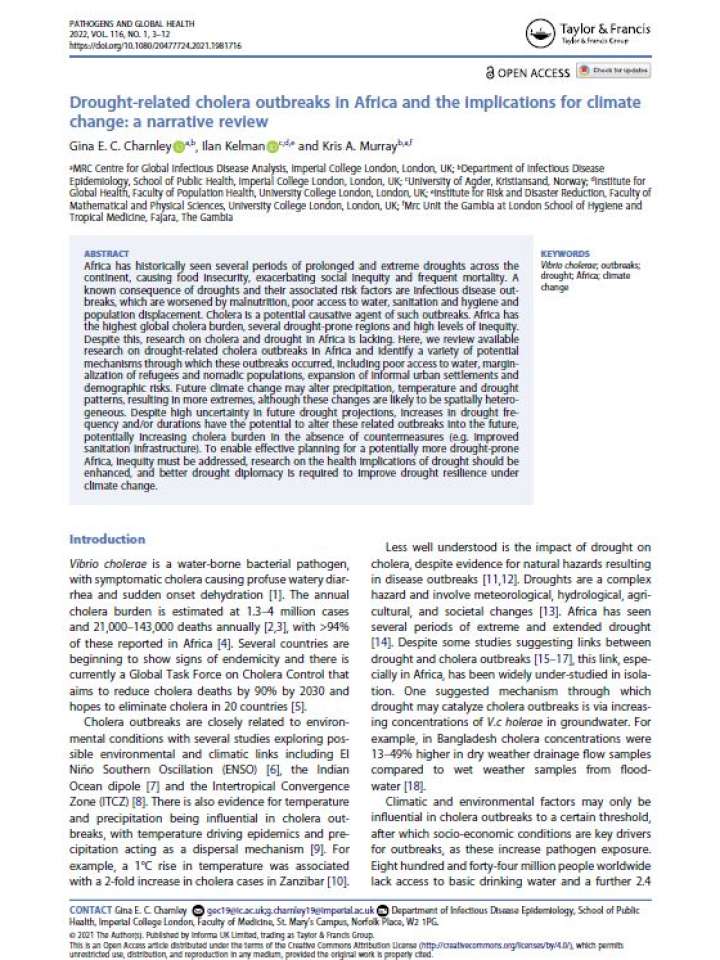Drought-related cholera outbreaks in Africa and the implications for climate change: a narrative review
This study reviews available research on drought-related cholera outbreaks in Africa and identify a variety of potential mechanisms through which these outbreaks occurred, including poor access to water, marginalization of refugees and nomadic populations, expansion of informal urban settlements and demographic risks. Africa has historically seen several periods of prolonged and extreme droughts across the continent, causing food insecurity, exacerbating social inequity and frequent mortality. A known consequence of droughts and their associated risk factors are infectious disease outbreaks, which are worsened by malnutrition, poor access to water, sanitation and hygiene and population displacement. Cholera is a potential causative agent of such outbreaks. Africa has the highest global cholera burden, several drought-prone regions and high levels of inequity.
The work here stresses the need for reducing population vulnerability before hazards occur. This could reduce drought impacts in Africa especially through poverty alleviation and providing WASH services, as the benefits of this would be far-reaching. Technological improvements, increasing research, and applying the research results to tackling drought-related health impacts is necessary. Additionally, enhanced drought diplomacy-that is, calling for multi-country drought response plans and water agreements-would allow for better water management and resource sharing and rapid assistance during droughts and subsequent outbreaks. This must include real-time assessments of population needs and identification of risk areas and local inequity, to make sure that assistance is targeted.
Explore further
